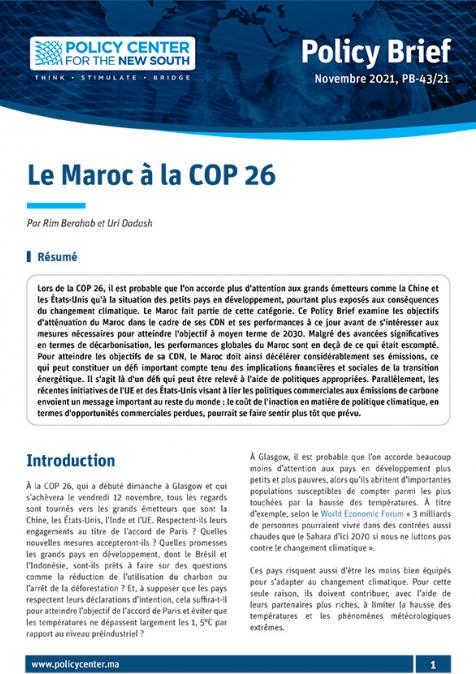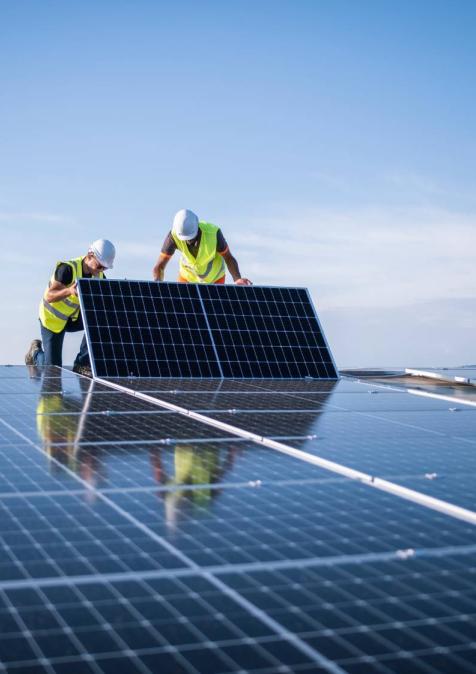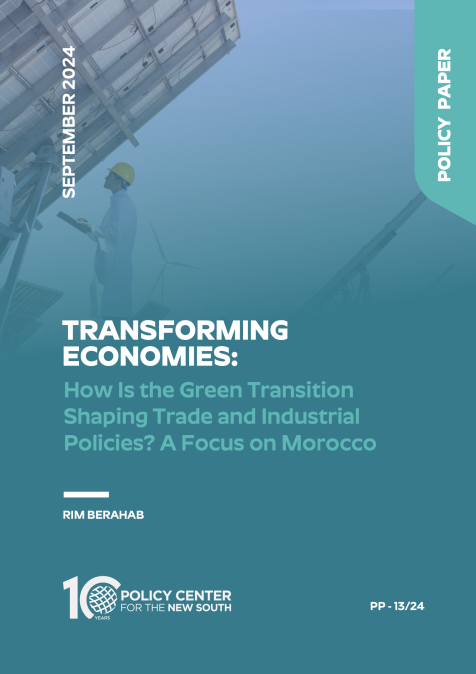Publications /
Policy Brief
Lors de la COP 26, il est probable que l'on accorde plus d'attention aux grands émetteurs comme la Chine et les États-Unis qu'à la situation des petits pays en développement, pourtant plus exposés aux conséquences du changement climatique. Le Maroc fait partie de cette catégorie. Ce Policy Brief examine les objectifs d'atténuation du Maroc dans le cadre de ses CDN et ses performances à ce jour avant de s'intéresser aux mesures nécessaires pour atteindre l'objectif à moyen terme de 2030. Malgré des avancées significatives en termes de décarbonisation, les performances globales du Maroc sont en deçà de ce qui était escompté. Pour atteindre les objectifs de sa CDN, le Maroc doit ainsi décélérer considérablement ses émissions, ce qui peut constituer un défi important compte tenu des implications financières et sociales de la transition énergétique. Il s'agit là d'un défi qui peut être relevé à l'aide de politiques appropriées. Parallèlement, les récentes initiatives de l'UE et des États-Unis visant à lier les politiques commerciales aux émissions de carbone envoient un message important au reste du monde : le coût de l'inaction en matière de politique climatique, en termes d'opportunités commerciales perdues, pourrait se faire sentir plus tôt que prévu.







